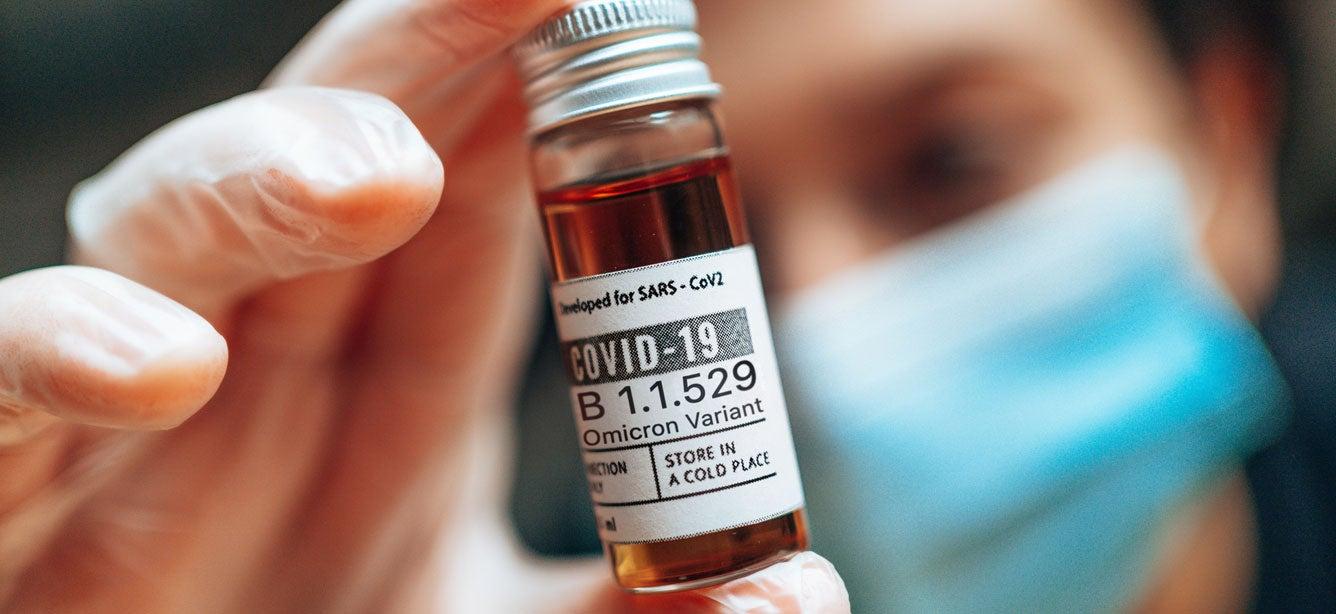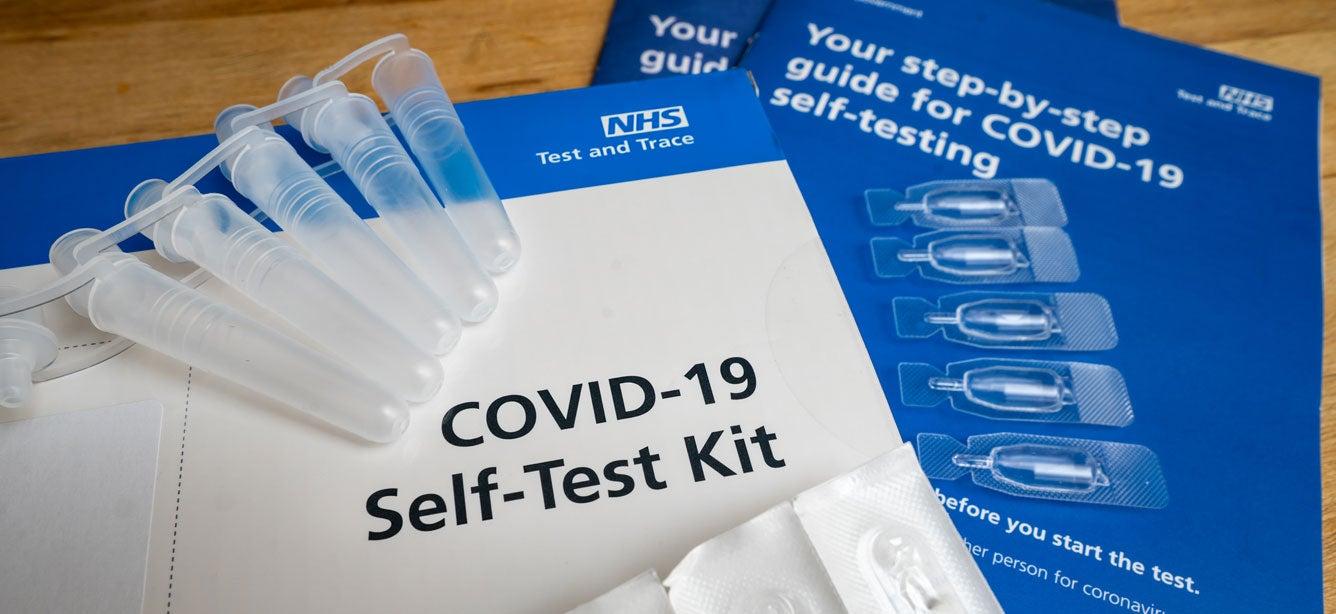How Older Adults Can Stay Protected During the Omicron Surge
5 min read

Related Topics
By now you have heard of the Omicron variant of the coronavirus, the virus that causes COVID-19. But what is Omicron? Omicron is a variant that emerged in South Africa around Thanksgiving and quickly spread around the world. The highly contagious Omicron variant is responsible for the latest surge in COVID-19 cases.
Omicron and older adults: What You need to know
- Approximately 95% of all new cases of COVID-19 in the U.S. are due to this variant.
- In December, the monthly rates of COVID-19-associated hospitalizations were 17 times higher in unvaccinated adults aged 65 years and older
- In addition, unvaccinated adults aged 65 and older are nearly 50 times more likely to require hospitalization than people the same age who have been vaccinated.
- People 65 and older who received both doses of either Pfizer or Moderna vaccines showed a 94% reduced risk of COVID-19 related hospitalization and vaccination was 64% effective among those who were partially vaccinated (Pfizer-BioNTech or Moderna).
It is important to recognize that variants are expected because viruses constantly change through mutation, especially among people who don’t have immunity, such as those not vaccinated.
How has Omicron mutated and why does is spread so easily?
Sometimes these mutations result in a new variant of the virus. Some COVID-19 variants emerge and disappear while others persist and cause disease. The expectation is that new variants of the coronavirus will continue to emerge. In the case of Omicron, most of the mutations are on the spike protein, which is the part of the virus that attaches to human cells and leads to infection.
The Omicron variant has spread more easily than the original virus that caused COVID-19 and the Delta variant, which produced the surge over the summer. Anyone with the Omicron infection can spread the virus to others, even if they are vaccinated or don’t have symptoms.
Across the globe, the Omicron variant has tended to cause less severe disease, and fewer hospital admissions and deaths than previous variants. Scientists are trying to determine whether this is due to a higher population immunity resulting from vaccination or past COVID infection, or because Omicron is less dangerous. Because so many people are getting infected with the Omicron variant every day, there has been a significant increase in hospitalizations over the past 6 weeks. Experts predict the peak for the current Omicron surge will be mid-February, with some states already seeing a decline in cases.
Are COVID-19 vaccines effective against the Omicron variant?
According to the Centers for Disease Control and Prevention (CDC), the current COVID-19 vaccines available in the U.S. protect against severe illness, hospitalizations, and deaths due to infection with the Omicron variant. However, breakthrough infections in people who are fully vaccinated have and will continue to occur. With other variants, like Delta, vaccines have remained effective at preventing severe illness, hospitalizations, and death. The recent emergence of Omicron further stresses the importance of vaccination and boosters provide added immunity.
Do the rapid at-home tests detect the Omicron variant?
The rapid at home COVID-19 antigen tests do detect the Omicron variant but some studies indicate that the tests may be less sensitive at picking up the variant, failing to detect some Omicron cases, especially during the early days of an infection. The quick tests are an important public health tool, and positive results are especially likely to be informative for taking necessary precautions. Therefore, people should continue to use these tests when a quick result is important, such as when a recent exposure to someone with a positive test for COVID-19 has occurred.
The federal government is now providing free at home test kits to all U.S. households. The government's COVIDTests.gov started accepting orders for 4 free COVID-19 tests. When you visit the site, it'll prompt you to go to a USPS online order form.
Here’s what you need to know about your free COVID-19 test order from the government:
- Limit of one order per residential address
- One order includes 4 individual rapid antigen COVID-19 tests
- Orders will ship free starting in late January
What is flurona?
You may have heard or read about “flurona,” which is when a person has both COVID-19 and flu or influenza at the same time. Flurona was first detected in Israel and has now been reported in several countries, including the U.S. Flurona is not a distinct disease. Given the recent surge of COVID-19 as a result of the contagious Omicron variant and the expected higher rates of flu compared to last year, it is expected that more cases will be detected as the winter continues. Some experts have warned that a “twindemic” of COVID and flu may occur this year.
The best protection against both COVID-19 and the flu is vaccination. Masking, social distancing, frequent hand washing, and avoiding crowds are also important preventive measures for both viral diseases. Reports from flurona cases indicate that for those who were vaccinated, the symptoms were very mild; for those not vaccinated, the diseases were severe.
COVID-19 and influenza are both respiratory infections and are spread in similar ways through droplets passed from person to person through talking, coughing, or sneezing. Both conditions cause similar symptoms such as fever, coughing, tiredness, runny nose, sore throat, diarrhea, and muscle and body aches. Given these similar symptoms, testing is the only way to detect if both conditions are present at the same time. Older adults, health workers, and those with certain health conditions, like heart disease and diabetes, are more at risk for each virus.
What is Deltacron?
You may have also heard about “Deltacron,” a possible new variant of the coronavirus that has features of both the Omicron and delta variants. This phenomenon was first reported in Cyprus.
The World Health Organization (WHO) has said that Deltacron is not a real thing and believes it is a result of contamination or error that happened during the lab testing process. WHO also acknowledges that someone could be infected with both the delta and Omicron variants at the same time. While it is possible for coronaviruses to genetically combine, it is rare, and experts studying the discovery of Deltacron say it is unlikely. Health authorities in Cyprus have stated that the possible new variant is not one of concern. So, even if it does exist, what little evidence there is so far suggests we should not be worried about it.



